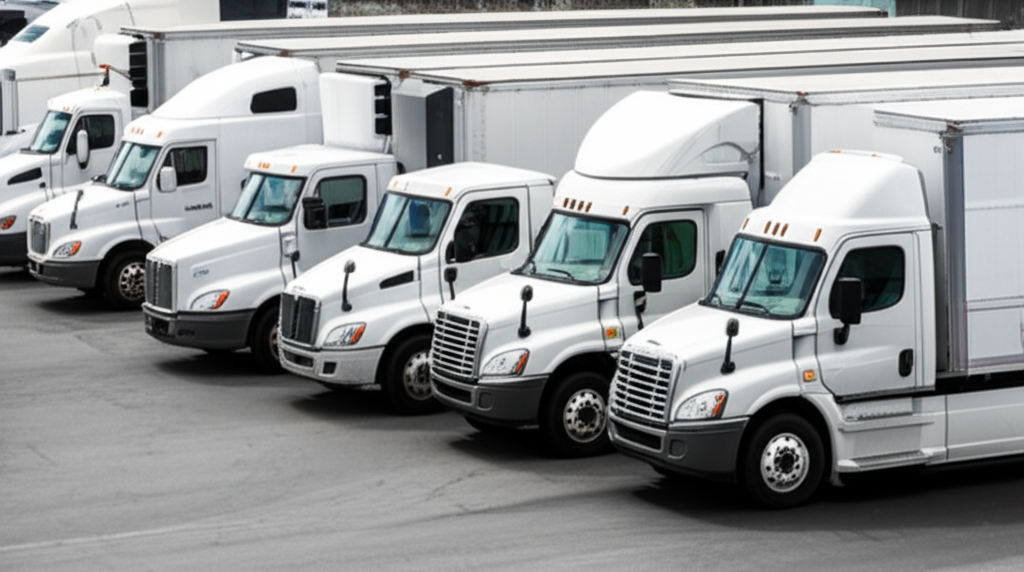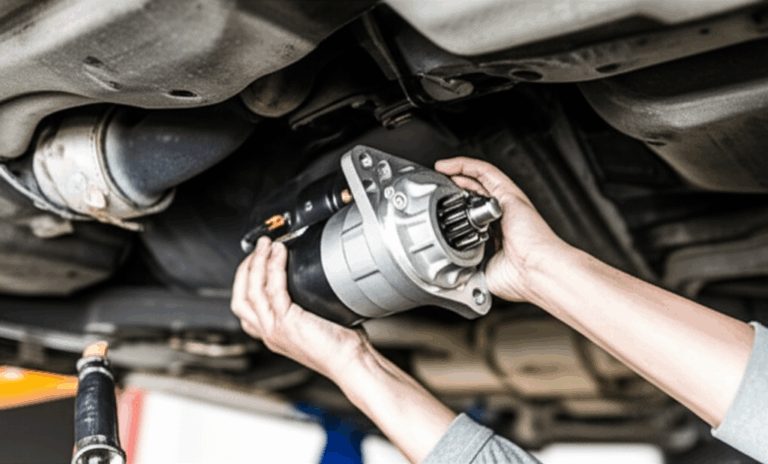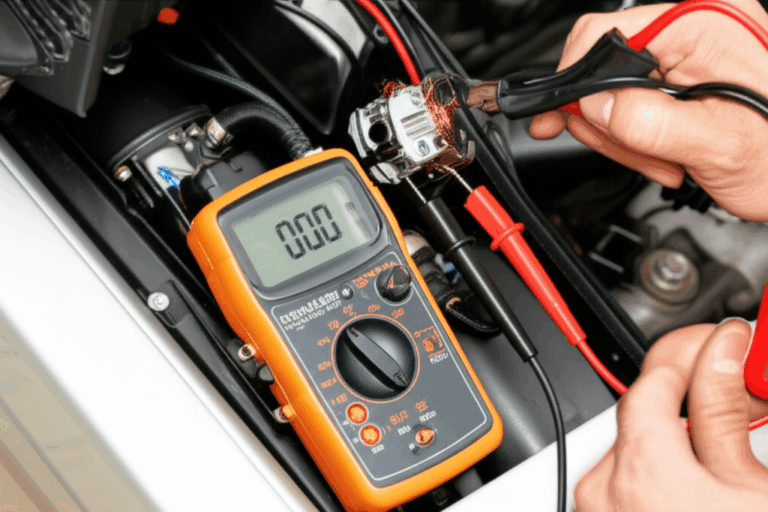
What Is a Motor Carrier? Your Complete Guide to Freight Transportation
A motor carrier moves people or freight by truck or bus. In simple words, a motor carrier is the company or person who runs the trucks. In this guide I show you what a motor carrier is, why it matters, and how it works. You will learn the types, the rules, and smart tips. If you ship goods or plan to start a trucking company this will save you time and money.
Table of Contents
- What exactly is a motor carrier?
- Why should you care about motor carriers?
- What types of motor carriers are there?
- How do motor carriers work day to day?
- Who regulates motor carriers in the U.S.?
- What is a CMV and what do drivers need?
- How safe are motor carriers?
- Where do carriers fit in the supply chain?
- Motor carrier vs freight broker vs shipper
- What about costs, rates, and documents?
- Tech and trucks: tools that boost results
- Challenges and future trends
- How do you become a motor carrier?
- How do you choose a motor carrier?
- Key stats and quick facts
- Simple terms and meanings
- FAQs
- References
- Key points to remember
What exactly is a motor carrier?
Let’s start with a clear motor carrier definition. A motor carrier is any company or person that transports cargo or passengers by motor vehicle for pay or for the needs of their own business. That means a motor carrier runs trucks, hires truck drivers, and handles freight transportation.
Here is what defines a motor carrier in practice. The carrier owns, leases, or controls commercial motor vehicles. The carrier hires or contracts safe drivers. The carrier holds the right operating authority. The carrier follows motor carrier regulations and motor carrier compliance rules from DOT and FMCSA.
The core meaning in plain talk
Some carriers haul freight for others. We call them a for-hire motor carrier. Some carriers haul their own goods. We call them a private motor carrier. Both move cargo with commercial motor vehicles. Both must keep people safe on the road.
Key characteristics
- They use or control a commercial motor vehicle (CMV).
- They employ or contract a qualified truck driver with a CDL.
- They carry motor carrier insurance. That can be liability insurance and cargo insurance.
- They follow HOS rules and use an ELD when needed.
- They hold permits, registration, a USDOT number, and sometimes an MC number.
Problem: Shipping feels complex and risky. You worry about delays, damage, and costs.
Agitate: A late load can halt a factory. A bad carrier can harm your brand. One crash can cost a fortune and hurt lives.
Solution: Understand motor carriers. Pick the right type. Check safety and authority. Use best practices. You lower risk and win back your time.
Why should you care about motor carriers?
You touch trucking each day. Food, phones, and fuel all arrive by truck. Motor carriers link farms, factories, and stores. They drive the supply chain. They power logistics from end to end.
If you ship freight you need clear answers. Logistics motor carrier role, supply chain motor carrier duties, and how motor carriers operate matter to your business. If you plan on becoming a motor carrier you must know motor carrier requirements, motor carrier licensing, and motor carrier permits. That is how you start a motor carrier business the right way.
What types of motor carriers are there?
You will hear about different types of motor carriers. Here is how they break down.
For-hire carriers
- Common carrier: Offers service to the public. Follows set rules and open rates. Ships many kinds of cargo for many shippers.
- Contract carrier: Serves select shippers under motor carrier contract agreements. Offers tailored service and negotiated rates.
- Exempt motor carrier: Hauls certain commodities that do not need economic regulation. For example unprocessed farm goods or newspapers.
Private carriers
A private motor carrier hauls goods for its own company. It does not haul freight for the public for pay. Think of a retail chain that uses its own fleet. A utility or a manufacturer may do the same.
Operational distinctions
- Less-than-truckload (LTL) carrier: Combines small shipments from many customers on one trailer.
- Full truckload (FTL) carrier: Fills a trailer with one customer’s load.
- Specialized motor carrier: Handles unique cargo. Think Hazmat, Reefer, Flatbed, Oversize, or Overweight.
- Intermodal motor carrier: Links truck with rail or ocean. This improves reach and cost.
Need help picking a type for your freight? That choice shapes service, risk, and price.
How do motor carriers work day to day?
Carriers win freight. Carriers plan routes. Carriers pick up and deliver loads on time. They follow HOS rules so drivers rest. They keep trucks maintained so trucks stay safe. They update shippers, consignees, and brokers with GPS tracking and dispatch calls.
A dispatcher sets the plan. Route optimization software finds fast and safe paths. Fleet management tools track fuel, miles, and driver hours. Fuel management for motor carriers matters because fuel eats profit. Maintenance motor carrier fleet work prevents roadside breakdowns.
Who regulates motor carriers in the U.S.?
The Federal Motor Carrier Safety Administration (FMCSA) sets safety rules. The mission is to cut crashes, injuries, and deaths. The Department of Transportation (DOT) oversees road safety with FMCSA. A DOT motor carrier must follow these rules.
Essential IDs and registration
- USDOT Number requirement: Most carriers in interstate commerce need a USDOT number.
- MC number meaning: A for-hire carrier that hauls regulated commodities across state lines needs operating authority called an MC Number.
- Unified Carrier Registration (UCR): Many interstate motor carriers, brokers, freight forwarders, and leasing companies must file UCR each year.
Safety and compliance
- Hours of Service (HOS) rules: These limit driving hours.
- Electronic logging device (ELD): This records duty time for HOS. ELD use rose after the ELD mandate.
- Drug and alcohol testing motor carriers must run a program for drivers.
- Vehicle maintenance: Inspections keep CMVs safe.
- CSA scores motor carriers: The CSA program tracks safety across 7 BASICs. It helps find high risk carriers.
What is a CMV and what do drivers need?
A Commercial Motor Vehicle (CMV) is a truck or bus that meets certain size or use rules. Size can include gross vehicle weight (GVW) and axle load regulations. Use can include moving Hazmat or passengers.
Drivers often need a Commercial Driver’s License (CDL). Many also need extra training like Hazmat. They must follow HOS and use an ELD if the rules apply. They must pass drug and alcohol tests. Safety first.
How safe are motor carriers?
Most carriers work hard to be safe. FMCSA uses CSA to watch performance of motor carriers. Carriers face safety audits and inspections. They log data and fix issues.
Accident statistics motor carriers show why this matters. Large truck crashes can be deadly. The goal is zero. Best practices motor carriers include speed control, rest, pre-trip checks, and training. You can review a carrier’s CSA scores and safety plans before you book freight.
Where do carriers fit in the supply chain?
Carriers help connect commerce. They move goods from plants to warehouses to stores. This supports jobs and GDP. Motor carriers are an economic engine. They give flexibility and reach with door to door service and access to remote sites.
Freight transportation explained is simple. The shipper has goods to send. The consignee receives the goods. The carrier moves the goods. A bill of lading lists the terms. A trucking company may work with a 3PL or 4PL to plan and run the move.
Supply chain disruptions hit hard when trucks stop. Weather and fuel swings cause delays and costs. Strong motor carriers help you keep goods moving when the road gets rough.
Motor carrier vs freight broker vs shipper
A motor carrier runs trucks and moves freight. A freight broker arranges the move between shipper and carrier. The broker does not run trucks. A shipper owns the freight and needs it moved. All three play key roles in logistics and the supply chain.
You may also hear about an owner-operator vs motor carrier. An owner-operator is a driver who owns a truck. They may lease on to a carrier. Or they may carry their own operating authority and act as a small motor carrier.
What about costs, rates, and documents?
Freight rates change with the market. Capacity issues motor carriers face can raise price. Fuel spikes add costs. Insurance costs keep rising. Tariffs and fees can apply. Clear motor carrier contract agreements help avoid surprises.
Documents matter. The bill of lading sets the deal and the proof of receipt. Carriers also carry permits and registration. Carriers file UCR each year. Cross-border motor carrier work adds steps like customs. International motor carrier service may operate under USMCA for North America.
You may ship with a motor carrier as LTL, FTL, dedicated motor carrier services, or expedited motor carrier services. Each service meets a different need and timeline.
Tech and trucks: tools that boost results
Technology improves safety and service. Telematics helps track vehicles. GPS tracking shows location. Route optimization software picks the best path. Fleet management platforms tie it all together. A fuel card can cut fuel costs and track spend.
Autonomous trucking grows fast. Predictive maintenance warns you before a part breaks. Green initiatives push lower emissions. Electric vehicles now haul local freight. Reefer units keep goods cold with smart sensors.
If you build or buy electric motors for EV trucks, reefers, or warehouse gear you care about the motor core. Quality cores use precise laminations. Learn how better electrical steel laminations reduce losses and heat. The stator core lamination and the rotor core lamination both shape motor torque and efficiency. You can also review complete motor core laminations to match your design. Better cores mean better motors which helps fleets cut fuel or power costs.
Problem: Your fleet fights high fuel and power waste. Agitate: Waste drains profit mile after mile. Solution: Use route tools, right spec trucks, and quality motors with sound laminations. Your trucks run smoother and your loads arrive on time.
Challenges and future trends
The driver shortage remains tough. Reports show a shortage in the tens of thousands. It may grow if trends hold. This lifts wage costs and limits capacity. Fuel, maintenance, and insurance add more pressure.
Environmental regulations for motor carriers expand. More fleets add electric trucks. More work shifts to green initiatives. IFTA helps fuel tax reporting for interstate motor carriers. PrePass speeds safe carriers past a weigh station. Carriers rely on truck stops for rest and service.
Technology keeps climbing. Carriers test autonomous trucking and AI-driven logistics. They use real time data to plan. Many join motor carrier association groups like American Trucking Associations and OOIDA to push for smart policy.
How do you become a motor carrier?
Starting a motor carrier business takes steps. First pick your business type and scope. Will you run intrastate or interstate motor carrier service. Will you be private or for-hire.
Then register for a USDOT number. If you are for-hire in interstate commerce and you haul regulated goods you need an MC Number for operating authority. Set up Unified Carrier Registration. Get the right motor carrier insurance including liability insurance motor carrier and cargo insurance motor carrier.
Set up your safety plan. Install your ELD if needed. Train drivers on HOS rules. Build your maintenance schedule. Expect a motor carrier safety audit early on. Keep neat records and pass with ease.
How do you choose a motor carrier?
Look at performance of motor carriers. Check CSA scores. Review accident history. Ask about HOS and ELD compliance. Verify USDOT number and MC number. Confirm insurance levels.
Pick the right service. For small loads use LTL. For large loads use FTL. For frozen goods use a Reefer. For building material use a Flatbed. For general freight use a Dry Van. For chemicals use a Hazmat certified team. You can ask about dedicated motor carrier services or expedited motor carrier services if speed or consistency matters.
Get clear written motor carrier contract agreements. Know freight rates and tariffs. Confirm weight limits and GVW rules for your lanes. A good carrier guides you on permits and axle load regulations.
Problem: You fear making the wrong pick. Agitate: A bad pick brings delays and costs. Solution: Use a short checklist. Verify authority and safety. Match service type to freight. Start with one lane. Test then scale.
Key stats and quick facts
Here are simple facts that help you see the trucking industry today. Numbers can change by year and source.
| Category | Simple Insight |
|---|---|
| Total for-hire trucking revenue | Near $875B in recent reports from ATA. |
| Tons of freight moved | Over 11B tons each year per ATA trends. |
| Number of for-hire carriers | Over 1.3M registered by FMCSA data. |
| People employed | Over 8M in trucking jobs with about 3.5M truck drivers per BLS. |
| Driver shortage | Tens of thousands short and could grow. |
| ELD compliance | Near full compliance among covered carriers since the mandate. |
| CSA coverage | FMCSA tracks safety for hundreds of thousands of active carriers. |
Simple terms and meanings
Use this table as a quick guide to common words and phrases you will see.
| Term or Phrase | Simple Meaning |
|---|---|
| Motor carrier definition | What a motor carrier is and does. |
| What defines a motor carrier | The rules and traits that make a company a motor carrier. |
| Meaning of motor carrier | Plain language idea of the term. |
| Understanding motor carriers | Know the job and the rules for carriers. |
| Types of motor carriers | For-hire, private, common, contract, exempt. |
| For-hire motor carrier | Hauls freight for others for pay. |
| Private motor carrier | Hauls goods for its own business. |
| Common motor carrier | Sells service to the public. |
| Contract motor carrier | Serves select shippers under contract. |
| Exempt motor carrier | Hauls certain goods outside economic rules. |
| Motor carrier responsibilities | Safety, service, maintenance, records. |
| Motor carrier regulations | Rules set by FMCSA and DOT. |
| FMCSA motor carrier | A carrier under FMCSA safety rules. |
| DOT motor carrier | A carrier under DOT oversight. |
| USDOT number requirement | ID required for most interstate carriers. |
| MC number meaning | Operating authority ID for for-hire interstate carriers. |
| Operating authority motor carrier | Legal right to haul freight for pay. |
| Trucking company definition | A business that runs trucks to move goods. |
| Freight transportation explained | How goods move by truck. |
| Logistics motor carrier role | Where carriers fit in logistics. |
| Supply chain motor carrier | How carriers link the chain. |
| How motor carriers operate | Day to day work of planning and hauling. |
| Becoming a motor carrier | Steps to start a carrier. |
| Motor carrier requirements | What you must have to run. |
| Commercial motor vehicle definition | What counts as a CMV by size or use. |
| CMV regulations | Rules that apply to CMVs. |
| Truck driver definition | A person who drives a CMV. |
| Owner-operator vs motor carrier | A driver owner vs a carrier entity. |
| Motor carrier safety | Safety programs and actions. |
| CSA scores motor carriers | Safety scores in FMCSA CSA. |
| Hours of Service (HOS) rules | Limits on driving and work hours. |
| Electronic logging device (ELD) | Tool that records HOS. |
| Motor carrier insurance | Coverages carriers carry. |
| Cargo insurance motor carrier | Insurance for freight damage. |
| Liability insurance motor carrier | Insurance for injury or damage claims. |
| Interstate motor carrier | Carrier that crosses state lines. |
| Intrastate motor carrier | Carrier that runs inside one state. |
| Difference between common and contract carrier | Public service vs contract service. |
| Motor carrier vs freight broker | Carrier moves freight. Broker arranges. |
| Freight forwarding motor carrier | Carrier that may also handle forwarding tasks. |
| 3PL motor carrier services | Logistics firm that manages carrier services. |
| Shipping with a motor carrier | Using a carrier to move your freight. |
| What is a motor carrier number | The MC number for operating authority. |
| Motor carrier compliance | Meeting all rules and audits. |
| Motor carrier permits | Legal permits to run and haul. |
| Motor carrier registration | Filing to get IDs and status. |
| Federal Motor Carrier Safety Administration | The FMCSA agency. |
| Roles of motor carriers | What carriers do in the market. |
| Importance of motor carriers | Why they matter to the economy. |
| Motor carrier industry overview | Big picture of the trucking industry. |
| Current state of motor carrier industry | Trends today in the field. |
| Challenges for motor carriers | Shortage, costs, and rules. |
| Future of motor carriers | Tech and green shifts ahead. |
| Motor carrier technology | Tools like telematics and AI. |
| Fleet management for motor carriers | Managing trucks and drivers. |
| Route optimization motor carrier | Using software to plan routes. |
| Fuel management motor carrier | Cutting fuel waste. |
| Maintenance motor carrier fleet | Keeping trucks in shape. |
| Driver shortage motor carrier | Not enough drivers to meet demand. |
| Capacity issues motor carrier | Not enough trucks or time. |
| Freight rates motor carrier | Price to move freight. |
| Tariffs motor carrier | Fees and charges in transport. |
| Bill of lading motor carrier | The key shipping document. |
| What is a shipper | The party that sends goods. |
| What is a consignee | The party that receives goods. |
| Less-than-truckload (LTL) carrier | Carrier for small loads. |
| Full truckload (FTL) carrier | Carrier for full trailer loads. |
| Specialized motor carrier | Carrier for special cargo. |
| Bulk motor carrier | Carrier for bulk goods like liquids or grain. |
| Intermodal motor carrier | Carrier that links modes. |
| Hazardous materials (Hazmat) carrier | Carrier for dangerous goods. |
| Dry van carrier | Carrier using box trailers. |
| Reefer carrier | Carrier using refrigerated trailers. |
| Flatbed carrier | Carrier using open flat trailers. |
| Weight limits motor carrier | Legal limits on weight. |
| Axle load regulations | Rules on axle weight. |
| Gross vehicle weight (GVW) | Total weight of vehicle and load. |
| Commercial Driver’s License (CDL) | License for CMV drivers. |
| Drug and alcohol testing motor carriers | Tests required for drivers. |
| Unified Carrier Registration (UCR) | Annual filing for many transport firms. |
| Performance of motor carriers | How carriers score on service and safety. |
| Economic impact of motor carriers | The value carriers add to the economy. |
| Supply chain disruptions motor carriers | Events that slow or stop freight. |
| Environmental regulations motor carriers | Rules to cut emissions. |
| Green initiatives motor carriers | Steps to be cleaner. |
| Autonomous trucking motor carriers | Self-driving or driver assist trucks. |
| Motor carrier services offered | The set of services a carrier sells. |
| Choosing a motor carrier | How to pick a good one. |
| How to find a motor carrier | Ways to locate a fit partner. |
| Motor carrier contract agreements | Legal terms for service. |
| Dedicated motor carrier services | Trucks set aside for one shipper. |
| Expedited motor carrier services | Fast service when time is tight. |
| Cross-border motor carrier | Carrier that crosses national borders. |
| International motor carrier | Carrier that works across countries. |
| Motor carrier licensing | Legal steps to run a carrier. |
| Starting a motor carrier business | Launching your carrier company. |
| Motor carrier safety audit | A review of your safety plan. |
| Accident statistics motor carriers | Numbers on crashes and trends. |
| Best practices motor carriers | Steps that improve safety and service. |
| Motor carrier association | Groups like ATA or OOIDA that support carriers. |
| Motor Carrier | The company that moves freight. |
| FMCSA (Federal Motor Carrier Safety Administration) | U.S. safety agency for carriers. |
| DOT (Department of Transportation) | Federal department over transport. |
| USDOT Number | The ID for many transport firms. |
| MC Number | Authority ID for for-hire carriers. |
| Commercial Motor Vehicle (CMV) | Truck or bus under rules. |
| Truck Driver | Person who drives the truck. |
| Trucking Company | Business that runs trucks. |
| Freight Broker | Middle person who arranges loads. |
| Shipper | Party that sends the goods. |
| Consignee | Party that receives the goods. |
| Logistics | The planning of moves. |
| Supply Chain | The full path goods take. |
| Freight Transportation | Moving goods by road. |
| Operating Authority | Right to haul for pay. |
| Bill of Lading | Proof and terms for a load. |
| Common Carrier | Public service carrier. |
| Contract Carrier | Contract service carrier. |
| Private Carrier | Carrier for own goods. |
| For-Hire Carrier | Carrier that hauls for pay. |
| Exempt Carrier | Carrier outside some economic rules. |
| Owner-Operator | Driver who owns the truck. |
| LTL | Less-than-truckload service. |
| FTL | Full truckload service. |
| ELD | Electronic logging device. |
| HOS | Hours of Service rules. |
| CDL | License for CMV drivers. |
| CSA | Safety program at FMCSA. |
| Hazmat | Hazardous materials. |
| Reefer | Refrigerated trailer. |
| Dry Van | Box trailer. |
| Flatbed | Open deck trailer. |
| Intermodal | Multi-mode shipping. |
| 3PL (Third-Party Logistics) | Logistics partner. |
| 4PL (Fourth-Party Logistics) | Higher level logistics manager. |
| USMCA | Trade deal for U.S., Mexico, Canada. |
| Unified Carrier Registration (UCR) | Annual registration. |
| International Fuel Tax Agreement (IFTA) | Fuel tax reporting pact. |
| PrePass | Program to bypass weigh stations when safe. |
| Weigh Station | Roadside weight and safety check. |
| Truck Stop | Place for fuel, food, rest. |
| Dispatcher | Person who guides drivers. |
| Fleet Management | Running trucks and drivers well. |
| Route Optimization Software | Tool to plan better routes. |
| GPS Tracking | Tool to track truck location. |
| Fuel Card | Card to buy fuel and track spend. |
| Trucking Industry | The full market for trucking. |
| American Trucking Associations (ATA) | Industry group. |
| OOIDA (Owner-Operator Independent Drivers Association) | Driver owner group. |
| Cargo | The goods in the truck. |
FAQs
Q: What is the primary difference between a common carrier and a contract carrier?
A: A common carrier serves the public at large. A contract carrier serves select shippers under a contract with custom terms.
Q: Do all motor carriers need a USDOT number and an MC number?
A: Most interstate carriers need a USDOT number. For-hire interstate carriers that haul regulated goods also need an MC number.
Q: What does a private motor carrier do?
A: It hauls its own goods for its own business. It does not haul for the public for pay.
Q: How do motor carriers impact the economy?
A: They move most goods. They support jobs and keep stores stocked. They keep the supply chain running.
Q: What are the main regulatory bodies for motor carriers in the U.S.?
A: FMCSA and DOT set most federal rules for carriers and drivers.
References
- Federal Motor Carrier Safety Administration (FMCSA) publications and CSA overviews
- U.S. Department of Transportation (DOT) guidance
- American Trucking Associations (ATA) industry reports
- U.S. Bureau of Labor Statistics (BLS) data on trucking jobs
- National Highway Traffic Safety Administration (NHTSA) crash facts
- Industry research on telematics and fleet adoption
Key points to remember
- A motor carrier moves people or cargo by truck and follows FMCSA and DOT rules.
- Types include common, contract, exempt, and private carriers.
- LTL, FTL, specialized, and intermodal cover how loads move.
- Check USDOT number, MC number, UCR, insurance, and CSA scores before you ship.
- Use HOS, ELD, and maintenance best practices to stay safe and compliant.
- Watch costs like fuel, maintenance, and insurance.
- Use tech like GPS tracking, route optimization software, and fleet management to boost results.
- Plan for driver shortage, capacity swings, and environmental regulations.
- Build strong contracts and use the bill of lading to set clear terms.
- Pick the right carrier for your cargo and lane then scale what works.








